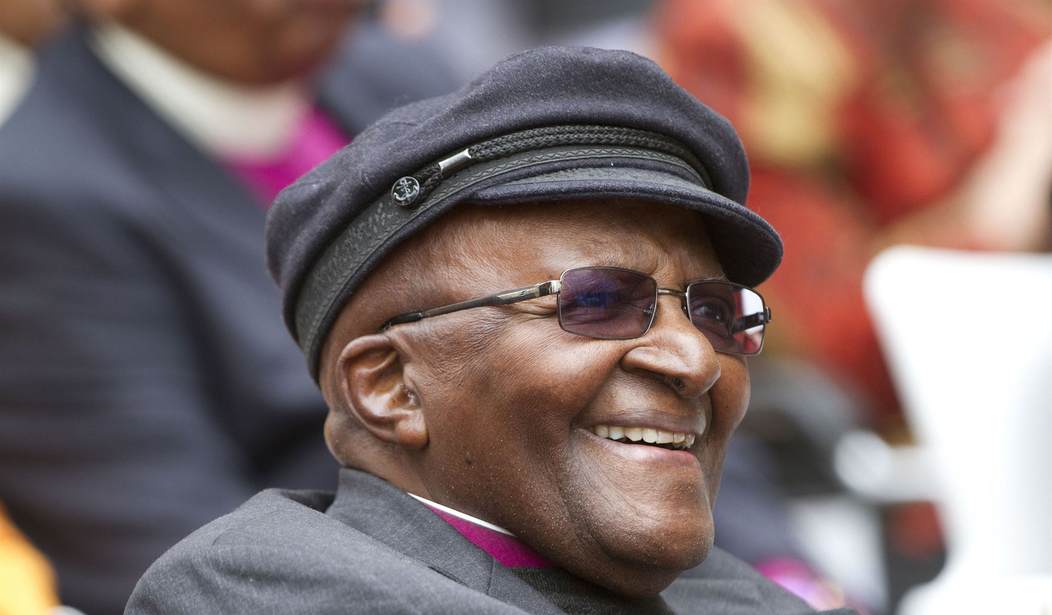It’s hard to believe that, less than 30 years ago, South Africa was a nation riven by apartheid and segregation. To look back on that time period and realize that it wasn’t that long ago is astonishing. Brave men and women stood up and spoke out against the horrendous policy, and eventually, South Africa shook off the bond of apartheid.
Desmond Tutu was one of those voices who spoke of the importance of freedom for black South Africans, and now he is with his Heavenly Father. Tutu passed away on Sunday at the age of 90.
“The passing of Archbishop Emeritus Desmond Tutu is another chapter of bereavement in our nation’s farewell to a generation of outstanding South Africans who have bequeathed us a liberated South Africa, said South African President Cyril Ramaphosa in a statement.
Tutu joined the Anglican clergy as a young man and rose to prominence as a pastor and later as a bishop. In the late 1960s, Tutu began to speak out publicly against apartheid. In 1979 he said he supported an economic boycott of South Africa, which met with a reprimand by the South African government. The government seized his passport, which drew international attention. Tutu became an icon in the fight against apartheid, alongside Nelson Mandela.
The Nobel Prize Committee nominated Tutu for its Peace Prize every year from 1981 to 1984, and he finally won in 1984, citing his “role as a unifying leader figure in the campaign to resolve the problem of apartheid in South Africa.” He received hundreds of other awards and honorary doctorates throughout the course of his life.
Recommended: This Holiday Season, Let’s Be Thankful for Our Religious Freedom
The Anglican church promoted Tutu to the position of Bishop of Johannesburg in 1985 and Archbishop of Cape Town the following year. Both promotions met with protests from white South Africans who supported apartheid.
A man of short stature, Tutu was blunt but often punctuated his sermons with wit. He was willing to mix politics with his work as a clergyman, often inviting anti-apartheid activists to speak at events and church services. He often spoke at funerals for anti-apartheid crusaders, and he spoke with equal force against pro-apartheid forces and militant anti-apartheid fighters who attempted to disrupt those services.
As apartheid drew near to its end, Tutu organized many nonviolent acts of civil disobedience, which white and black South Africans took part in. When Nelson Mandela was released from prison in 1990, he spent his first night of freedom at Tutu’s home. Tutu expressed his exhilaration when apartheid finally ended in 1994.
Tutu was decidedly a man of the left. He called himself a socialist, yet he condemned Marxism for its atheistic bent. He wrongly called U.S. President Ronald Reagan a racist and condemned his administration, and in his later years, he campaigned for LGBT rights.
“He remained true to his convictions during our democratic dispensation and maintained his vigour and vigilance as he held leadership and the burgeoning institutions of our democracy to account in his inimitable, inescapable and always fortifying way,” Ramaphosa also said.
Despite his political stances, Tutu stands tall as a man of God and a diminutive giant in the fight against racism in South Africa. May he rest in peace.










Join the conversation as a VIP Member